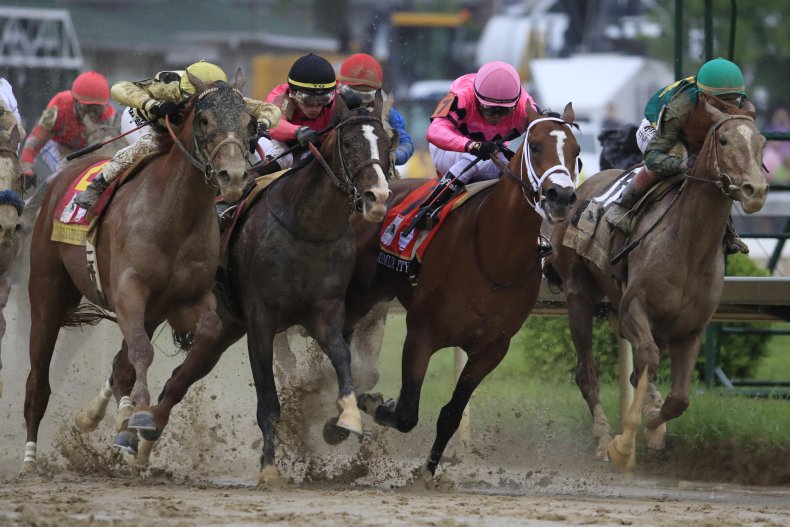Why 'My Old Kentucky Home' is So Controversial
"My Old Kentucky Home" will be played at the Kentucky Derby as per tradition, despite criticism from activists who consider the song to be racist.
Last year, the song was performed by bugler Steve Buttleman without any lyrics following a moment of silence, in a "thoughtfully and appropriately modified" performance, according to Churchill Downs, following the death of Breonna Taylor and the subsequent Black Lives Matter protests in Kentucky.
Churchill Downs confirmed yesterday that "My Old Kentucky Home" will be performed at the Kentucky Derby, though no other details have been announced.
But why is the song so controversial?
"My Old Kentucky Home" was written by Stephen Foster in 1853. The song's meaning has been contested since it was released, but as mentioned by the Kentucky Derby website, Foster is believed to have been inspired by Harriet Beecher Stowe's novel Uncle Tom's Cabin, initially naming the song "Poor Old Uncle Tom, Good-Night!"
"My Old Kentucky Home" is Kentucky's state song and it has been a tradition for it to be played at the Kentucky Derby for around 100 years, with some reports claiming that the song was first played at the derby in 1921.
However, Foster's intentions and the song's meaning have long been debated, with many people considering "My Old Kentucky Home" to be racist.
My Old Kentucky Home Lyrics
The "My Old Kentucky Home" lyrics, revised in 1986, are as follows: "The sun shines bright in My Old Kentucky home,/'Tis summer, and people are gay;/The corn-top's ripe and the meadow's in the bloom/While the birds make music all the day.
"The young folks roll on the little cabin floor/All merry, all happy and bright;/By 'n' by hard times comes a knocking at the door/Then My Old Kentucky Home, good night!
"Weep no more my lady/Oh! weep no more today!/We will sing one song/For My Old Kentucky Home/For My Old Kentucky Home, far away."
However, there are a number of versions of the song, and the original lyrics contained derogatory language, such as referring to the enslaved people as "darkies."
Why My Old Kentucky Home is controversial
"My Old Kentucky Home" is controversial because the meaning behind it and its composer's intentions are contested, as well as its original title and lyrics, and the contexts in which it has been performed, including at minstrel shows, while some people consider the song to be a powerful condemnation of slavery.
Smithsonian Magazine described the song as "a condemnation of Kentucky's enslavers who sold husbands away from their wives and mothers away from their children," and as "the lament of an enslaved person who has been forcibly separated from his family and his painful longing to return to the cabin with his wife and children."
The magazine reports that abolitionist luminary Frederick Douglass, who had been enslaved, wrote in My Bondage and My Freedom, that the song "awakens sympathies for the slave, in which antislavery principles take root, grow, and flourish."
However, others have pointed out the context in which it was performed—as a minstrel song, and consider Kentucky's state song to be racist.
Ahead of the Kentucky Derby last year, Emily Bingham, a Louisville-born historian who was writing a book on the history of the minstrel song, told WPFL that the song was: "written by a white man about a Black person being sold down river from Kentucky to the deep south to be sung by white men pretending to be black men on stages for white audiences.
Bingham added: "It is true that he was writing in the, in the midst of the bestseller success of my Uncle Tom's Cabin, the anti-slavery novel by Harriet Beecher Stowe, and it is true that his original version of the song was about Uncle Tom and not my old Kentucky home... but he was producing music for the blackface minstrel stage."


